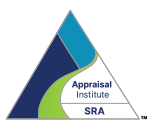Hagar explains that zoning laws were enacted to separate incompatible land uses and maintain the integrity and value of residential properties. However, recent legislative trends, exemplified by recent zoning laws in Washington State, have aimed to override local zoning decisions and mandate multi-family zoning in single-family neighborhoods.
The author argues that such laws disregard the preferences of the majority of homeowners and threaten the character and value of single-family neighborhoods. He predicts adverse effects on property values, increased lending costs, and challenges for appraisers in valuing properties in multi-family zones.
Hagar proposes solutions to address the potential consequences of these zoning changes, including educating lawmakers, empowering local communities in zoning decisions, allocating land for multi-family development in appropriate areas, reducing government fees and bureaucratic delays, and advocating for more comprehensive appraiser training.
Overall, Hagar's article warns of the far-reaching implications of altering single-family zoning laws and calls for proactive measures to safeguard homeowners and preserve the integrity of residential communities.

 RSS Feed
RSS Feed
